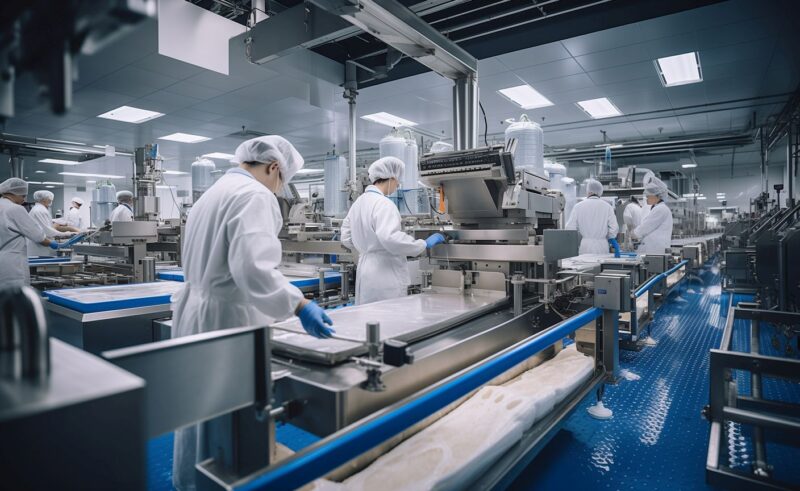Many everyday products we depend on come from raw materials that have gone through some kind of industrial processing. This means using specialized technology in manufacturing facilities that change natural resources into final goods for sale.
As an example, crude oil gets refined into gasoline or polyethylene resin pellets. This is then converted into plastic containers. Paper comes from trees that undergo a complex process to separate cellulose fibers for papermaking. Most of these steps happen in factories on a large scale. The scale of industrial processing is enormous compared to homemade crafting. Facilities operate nonstop, processing up to hundreds of tons of raw materials per hour.
Major Industries That Process and Manufacture Goods

There are several important industries that rely on significant processing or production methods. They include:
- Petrochemical Industry – Oil refineries are huge processing plants that separate blends of crude petroleum into fuels, plastics and hundreds of other chemical products. The experts at Trecora explain that these plants often cover vast areas and connect to many pipelines or marine tankers. A petrochemical processor breaks down the molecules in oil and natural gas to isolate common components like ethylene or propylene and create chemicals. Various processes like catalytic cracking, reforming, alkylation and delayed coking break apart and recombine h
- ydrocarbons.
- Metal Processing – Metal processing starts with mining or recycling and uses heat, physical force and chemistry to extract and fashion metals into useable forms. Steel mills turn iron ore and other ingredients into steel using coke fuel in blast furnaces. Mills roll or extrude steel into sheets, bars, and wires for manufacturing. Other metals like aluminum or copper go through similar smelters and plants to refine them from ore with techniques like electrolysis or melt purification.
- Paper, Pulp & Timber Products – The interrelated forestry industry does the initial processing of a tree by debarking and chipping it into wood chips. Pulping then separates wood fiber from lignin to make pulp using chemical or mechanical means. Pulp gets further processed into paperboard, packaging, and assorted papers. Sawmills transform logs into lumber and other wood products. Related processing yields essentials like turpentine and cellulose.
Working In Large Industrial Facilities
The scale and complexity of the equipment for heavily processing materials requires extensive operator training. Facilities use specialized machinery, intricate control systems, and hazardous inputs. Managing safely amid fiery furnaces, extreme pressures, caustic chemicals, toxic byproducts, and muscular moving parts makes strict safety standards a must.
Operators coordinate with lab technicians, managers, quality control inspectors and maintenance staff to keep output on pace and consistent. Communication systems include plant radios, phone networks and public address systems that integrate across large areas. A steady focus on protocols and detail keep these industrial powerhouses running reliably.
Why Industrial Processing Matters

Before mass processing, something like kerosene needed tremendous effort to directly produce in tiny quantities. Modern life could never have evolved to where it is without these major industries. They operate mostly unseen, quietly refining our natural resources into economical resources supporting virtually all sectors. Without thousands of trains, ships and trucks moving vital outputs from these plants to downstream manufacturers, store shelves would soon sit empty. From fertilizers to power generation to appliances, infrastructure ties it all together.
Conclusion
The massive scale and complexity of industrial processing facilities highlights the incredible engineering feats that make modern life possible. While the technologies and processes involved are highly technical, the impacts remain deeply interwoven into virtually every aspect of contemporary life. Our modern world would grind to a halt without the vital role of these large-scale industrial processors and producers steadily channeling outputs to downstream manufacturers of all goods and infrastructure.



